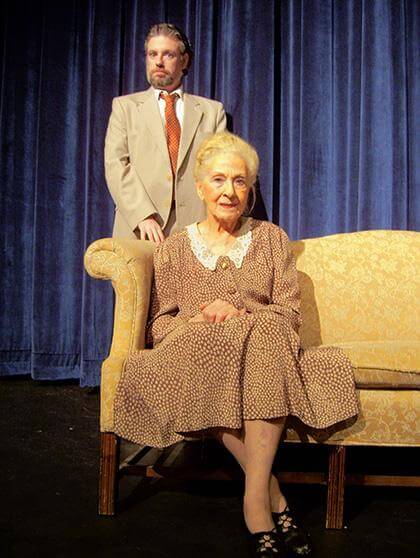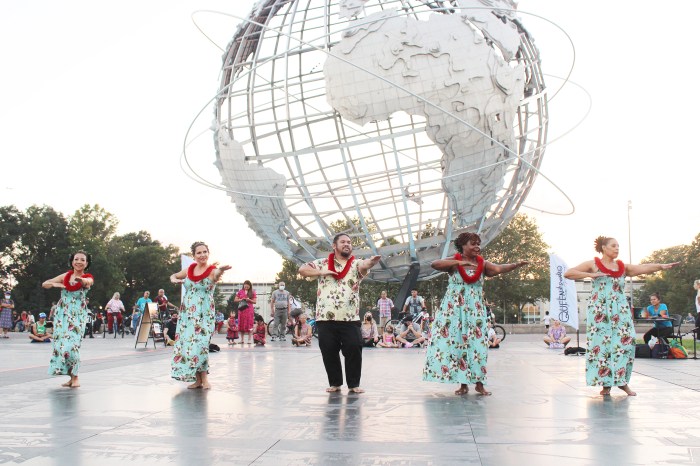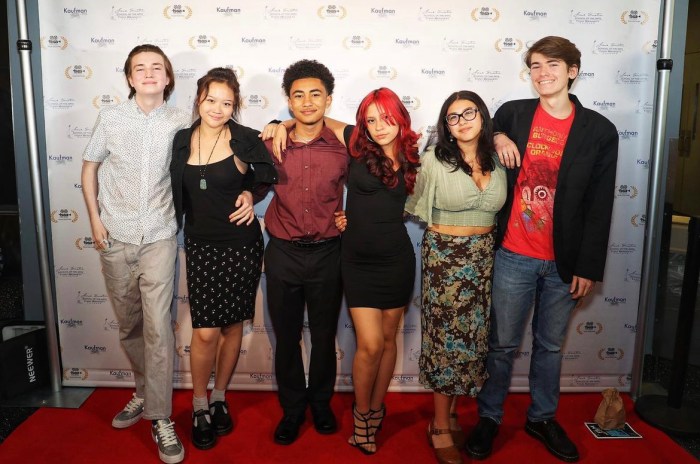By Arlene McKanic
In Horton Foote’s “The Trip to Bountiful,” playing now at the BroadHollow Theatre in Elmont, Carrie Watts, an elderly widow, has found herself in the unhappy place of many widows. Her husband being dead isn’t such a problem — she never loved him anyway — but now she has to live with her son Ludie and his shrewish wife, Jessie Mae, in a gloomy three room apartment in Houston.
Jessie Mae not only treats her like a child, but demands her pension check every month, as her husband doesn’t make enough money for them make ends meet. Fed up, and knowing that her life is soon coming to its close, Carrie decides she has to see Bountiful, her childhood home, before she dies. The only question is — will she make it in time?
The time and place of Horton Foote’s generous play is important. These folks are Southerners, and if Joan King’s costumes are any indication, they’re Southerners during a period just after World War II. Thus it doesn’t occur to anyone that maybe Jessie Mae should go out and get a job herself, as the ultimate humiliation for a husband is for his wife to have to go to work because he can’t support them on just his paycheck. Thus Jessie Mae has nothing to do all day but go to the beauty parlor, gossip with her one girlfriend, drink Cokes and harass her mother-in-law.
And when Carrie, a grown woman, winds up in a tiny bus depot near Bountiful, she’s literally put under arrest by the town sheriff, not because she’s done anything criminal, but because her son has called and asked that she be detained until he can come and get her.
Yet Carrie is also surrounded by a particularly Southern compassion and generosity. Ludie loves and respects her, even if Jessie Mae doesn’t. She finds a brief, warm friendship with Thelma, a loving and pretty young woman who’s her seatmate on the bus. The ticketmen at the depots are helpful, and even the sheriff who arrests Carrie proves he has a heart. Even the birds seem to sing for her.
The actors shine under Tom Wallace’s direction. Many remember Geraldine Fitzgerald’s wonderful portrayal of Carrie in the movie version of “Trip to Bountiful,” but Sonya Tannenbaum’s portrayal of the grieving, vulnerable, contrary and determined Carrie is just as good.
Gary Tifeld’s Ludie is a man trying to hold on to a scrap of dignity in a disappointing life. He will ask his boss for a raise, he will mediate between his mother and wife, he will stand up and be the head of his family. But he’s just gotten over a long, draining illness (“nerves”) his friends seem to be prospering, and he and Jessie Mae can’t have children; he’s the last of his line. He’s like Bountiful itself, whose last inhabitant, Carrie’s childhood friend, dies before she can see her one last time.
It’s easy to hate Rebecca Sharpe’s Jessie Mae. She’s a shrew, and you’re glad she can’t have kids because if she treats them anything like she treats her mother-in-law she’d drive them crazy before they reached puberty. Still, even as you wish she’d behave herself you understand Jessie’s plight. If she didn’t have Ludie and Carrie to chivvy she’d be as useless and empty as the old house where Carrie was raised.
Foote wrote Thelma, and Marisa Giacalone plays her, with an unironic sweetness that is unusual these days. The ticketmen (Eugene Sullivan and Ivan Goldfarb) and the young and rather studly sheriff (Michael Lynch) are gentlemen above all. In Foote’s world, everyone at least tries to be good.
The acting is enhanced by Brian Howard’s appropriately shabby, genteel set design. He knows how to evoke the dinginess of a Southern Greyhound bus station — and they are still mighty dingy — with only a few props.
King’s period costumes echo the dreariness, though Jessie Mae’s buzzing around in her silly little pagoda hat and heels signify her longing for upward mobility, at least.
Meghan Santelli’s lighting is beautiful and simple, whether it’s moonlight illuminating Carrie as she sits in her rocking chair, or the gentle dimming and raising of lights that evoke the lights that shine in and out of a bus’s windows as it rolls through the countryside.
A gentle meditation on longing and unfulfilled hopes, “The Trip to Bountiful” is memorable. It’s at the BroadHollow Theatre until Jan. 31.
If You Go
The Trip to Bountiful
When: Jan. 22, 23, 27, 29 and 30 at 8 p.m.; Jan. 24 and 31 at 2:30 p.m.; and Jan. 27 at 2 p.m.
Cost: $23 for adults, $21 for seniors, $18 for students, $14 for youths 12 and under
Where: BroadHollow Theatre, 700 Hempstead Turnpike, Elmont
Contact:bhtcgroupsales@aol.com 631-581-2700
Web site: www.broadhollow.org

































